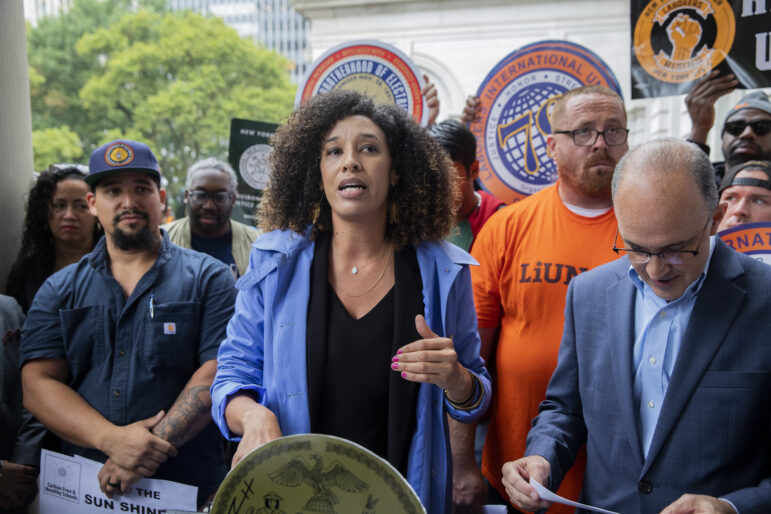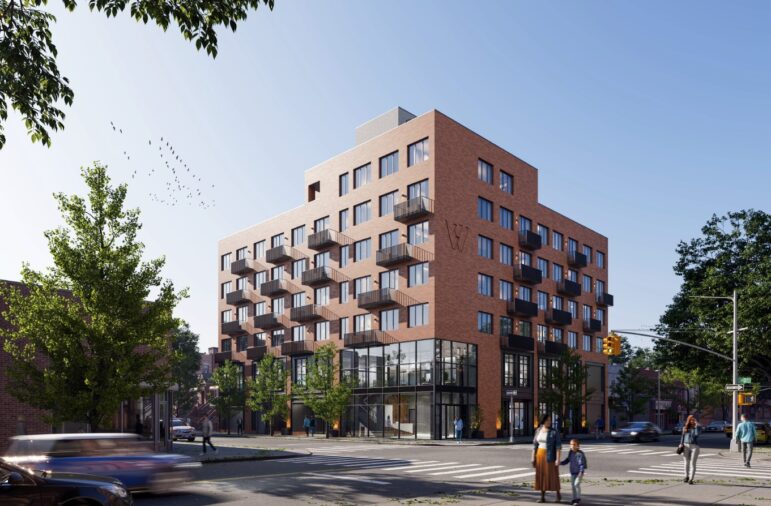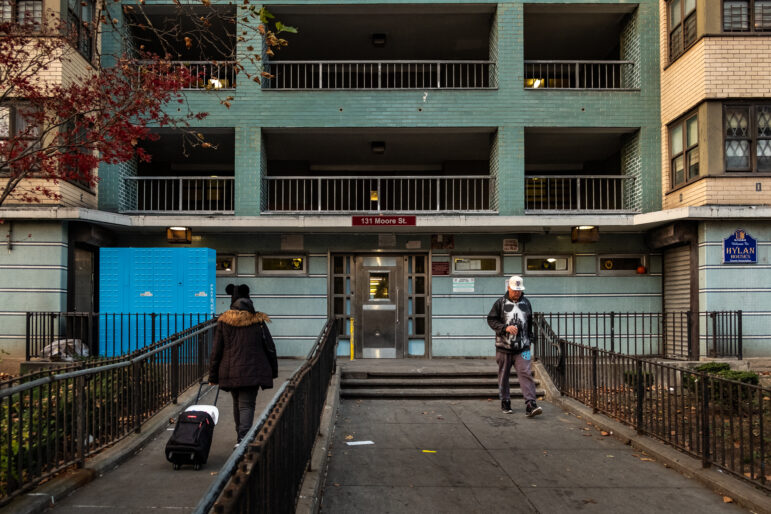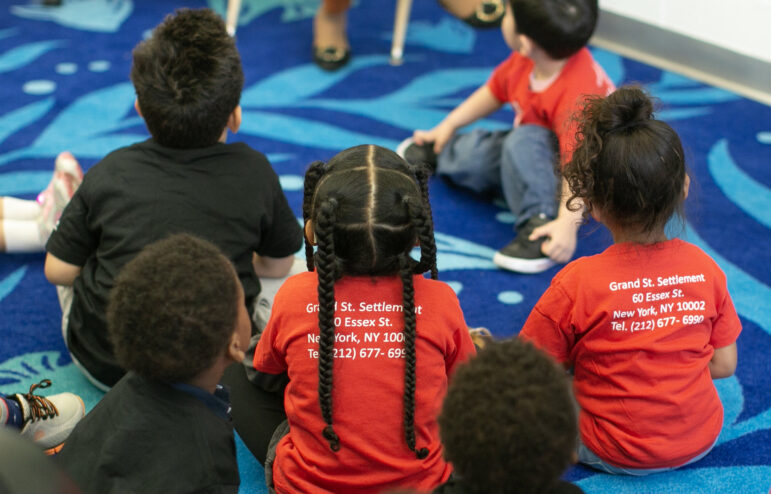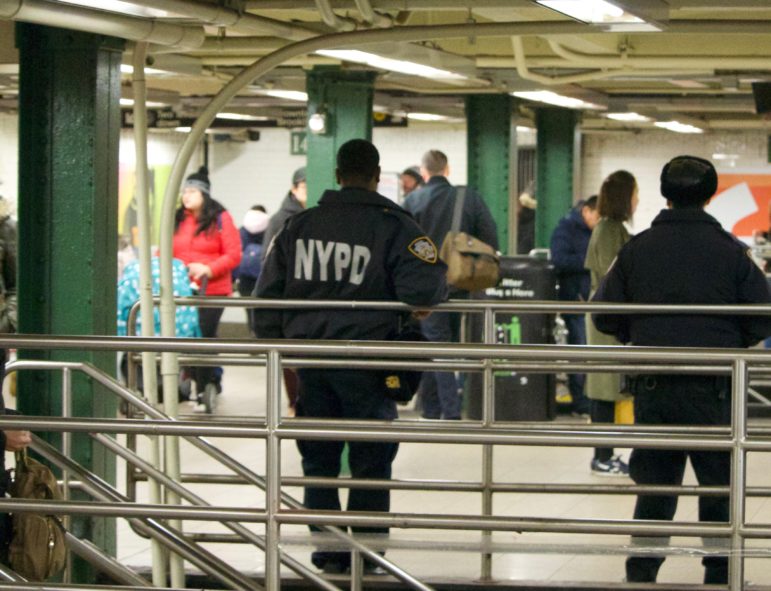
As we enter the New Year, we, the collective body of artists and cultural workers of The Laundromat Project’s alumni and extended communities, would like to address the MTA and the NYPD from a place of deep commitment to the people of New York City.
We direct our appeal — co-signed here by a community of supporters — to Governor Andrew Cuomo; Mayor Bill de Blasio; Police Commissioner Dermot F. Shea; MTA Chairman Patrick Foye; and District Attorneys Vance, Gonzalez, Clark, Katz, and McMahon.
The Laundromat Project (The LP) is an internationally recognized organization that advances artists and neighbors as change agents in their own communities.
Simply put, we are greatly disappointed and disturbed by the recent surge in police presence and aggression in the subway system as a solution to the MTA’s financial challenges.
As residents of New York, artists, and members of The LP community, we are intimately aware of and concerned for the well-being of its most vulnerable citizens, including teenagers of color, vendors of color, and low-income New Yorkers, many of whom are being disproportionately targeted by the unnecessary uptick in policing of the MTA system.
We ourselves are from these segments of the population, and see them in our families and classrooms. Our proximity to vulnerable community groups alerts us to the need for substantive change to the social infrastructure of our city—rather than strategies such as fare evasion policing which do more to punish than support those who are under the most strain.
Following former Mayor Bloomberg’s recent public apology about the enforcement of stop-and-frisk policies under his administration, it is hard to believe that, yet again, policing within public spaces is directly targeting perceived people of color and immigrants.
Further, we highlight and admonish the absurdity of the recent vote to devote $222,000,000 in public taxpayer dollars into the hiring of new NYPD officers to provide fare evasion enforcement for the MTA, which collects billions of dollars in revenue annually and defines itself as “public benefit institution.” We find the cost of maintaining these officers particularly disturbing given that the MTA reports less than $222,000,000 annual revenue loss through fare evasion.
Creating financial barriers through such ongoing policies as fare increases for hardworking, low-income New Yorkers who contribute to the economic, cultural, and social fabric of our city is not for the public’s benefit. Tasing and tackling young people for minor infractions such as fare evasion is not for the public’s benefit. Brandishing guns in transit stations in order to collect a missing $2.75 is not for the public’s benefit. These policies are extreme by any estimation and especially inappropriate when considered in context with the chronically underperforming public transit system that is less and less able to provide reliable service to New Yorkers.
 CityViews are readers’ opinions, not those of City Limits. Add your voice today!
CityViews are readers’ opinions, not those of City Limits. Add your voice today!
The increased police presence in the MTA points to a corresponding rise in surveillance of low-income people of color throughout the city. We are particularly disappointed to see a rise in semi-militaristic policing put in place by our state and local Democratic leaders, many of whom ran on platforms aimed at increasing social equity. We are aware of the rise in conservative, often xenophobic policies throughout the world, but will not stand for a corresponding policy shift in our city.
We point to the recent uprising in Chile: a direct response to their transit system’s untenable fare increase and a threat to citizens’ daily lives that resulted in a serious challenge to their government. The parallels are clear, and position New York City government’s current policies—both with regards to increased police presence, and to impending fare increases that bear no corresponding increase in wages—on the wrong side of just and equitable governance that could ensure, at the very least, a utilitarian functionality in our city.
We stand with the communities being targeted by these policies. As artists, activists, and cultural workers, our responsibility is to imagine and help manifest new worlds. We accept this task gladly and thus, call for the removal of the increased NYPD presence in the MTA.
We call for expanded policies that provide reliable, affordable access to public transportation for low- and middle-income New Yorkers. We call for strategies that decriminalize, rather than target, poverty. We call for the MTA and NYPD to invest in additional anti-racist and implicit bias training by working with community-attuned organizations such as the People’s Institute for Survival and Beyond and/or the Center for Racial Justice in Education.
We call for New York City to stand up in support of its incredible diversity across all measures—race, religion, gender, sexuality, age, class, disability, and immigration status—to maintain a transit system that is safe and accessible for all.
Shani Peters and Joseph Cuillier are affiliated with The Black School. Chloë Bass is an artist. Kemi Ilesanmi and Emma Colón represent The Laundromat Project.


